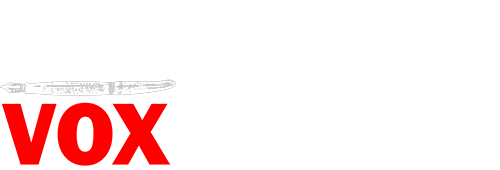Scaring the public for fun and profit. That seems to be what today’s media is about. Here’s something from an observer.
The Voice, The Rebel in the Red Scarf
This is the first time i am writing about this topic so please bear with me in this post 9/11 world we as human have become more fearful and we are constantly making adjustment in are life’s to deal with growing threats IE:gun security levels ,border patrol but before i dive into that i will start from were it begin in the early 1970 till about the early 1990s U.S citizens would get there information from one main news source and it was for the most part accurate as the 90′s rolled in and the internet and cable became the new source of info we saw a new upswing in slanted news sources also people want to hear what the believed in as well this also played a role in the way you received your info you political views played a part in what you that was more relative to you and then we started to see the birth of shows like Fox’s news and CNN and the death of public TV shows also we seen a spring board of new ways to seek out information it was the technology age the has giving the right wing Conservatives more and more power.
Many experts believe that media reports contribute to the “fear factor” experienced by the public during and after a terrorist event. I think the omnipresence of media venues does make this dilemma more exacerbated but only for a select group of viewers. As more people become aware of the role of the media, it often becomes clear that the media is airing events to gain ratings and a following from viewers. Companies such as NBC, FOX, and CNN show footage of nearly anything that can be even remotely digested by the public.
The Internet has possibilities for even more uncensored media coverage. At present, people seem to be keener in discerning how the media portrays terrorist events. The number of educated people has risen substantially, as has the number of people that look for information in more reputable sources. Humans have become more autonomous over time in regards to seeking information. It is my understanding that the widespread use of the Internet, ephemeral literature, books, and other publications makes for an omnivorous mind.
According to White (2006) mass media serve as a force multiplier for terrorists mainly in part due to the augmentation of terrorist events which may cause a fearful psychological aura. In order to protect the public from the omnipotent media and their omnidirectional messages of fear we must focus on certain type of censorship as a protective measure. I also believe this censorship would include the Homeland Security Agency in many aspects, since a lot is at stake. Here are some issues to consider:
Mass panic due to an overreaction would be a catastrophe to the U.S. economy and the country in general, as people would be fending for themselves fearing of another unconfirmed terrorist threat.
Security forces, law enforcement, and intelligence agencies need to do their jobs and often the media may interfere with the performance of such jobs due to an avaricious need to gain ratings and in turn make money (White, 2006). It is often the case that the media reports something before the intelligence gathered, or the impending hostage crisis, is resolved. People’s lives are on the line when a medium/media tries to boost its rating by propagating false or sensitive information.
In other countries the view of America by the media sources is quite different than the one American media portrays here. Therefore, it is encouraged to keep the country united and not allow for a division of citizens to support one side over the other. The eager or the wise will discern the messages reported by the media, and they will be able to “read between the lines.”
Policing other countries from airing “fear factor” content is a different issue all together. It would be nearly impossible to do so due to the propensity for a widespread boycott against the U.S. Even if political means were used to control some content aired on other nations’ airwaves, we (the U.S.) would still be found guilty of global censorship. I think it’s enough that many countries don’t like the United States, especially after the fall of the Soviet Union, as we have become a global supremacy; not a “crowd pleaser” (White, 2006). Therefore, in my humble opinion, we cannot have a strong impact on other nations’ media and content aired by them.
In retrospect, I would highly recommend for the Homeland Security Agency to intervene in certain aspects of airing terrorism related material. This would be highly beneficial to the intelligence agencies and other agencies directly involved with sensitive missions. Censorship of some kind needs to be implemented and the media outlets should be held accountable for divulging unsupported, and often times, dangerous information. I think that the regulation of Internet based content is nearly impossible, and at present, there is little we can do to control other nations’ media and Internet sources.


More Stories
AT LEAST ONE OF THE COPS WHO KILLED EZELL FORD HAS STRUCK BEFORE
PEOPLES' MONDAY HONORS FALLEN VICTIMS IN NYC
PA STATE REP: 'A WHITE NATIONALIST…IS A LOT DIFFERENT THAN A WHITE SUPREMACIST'